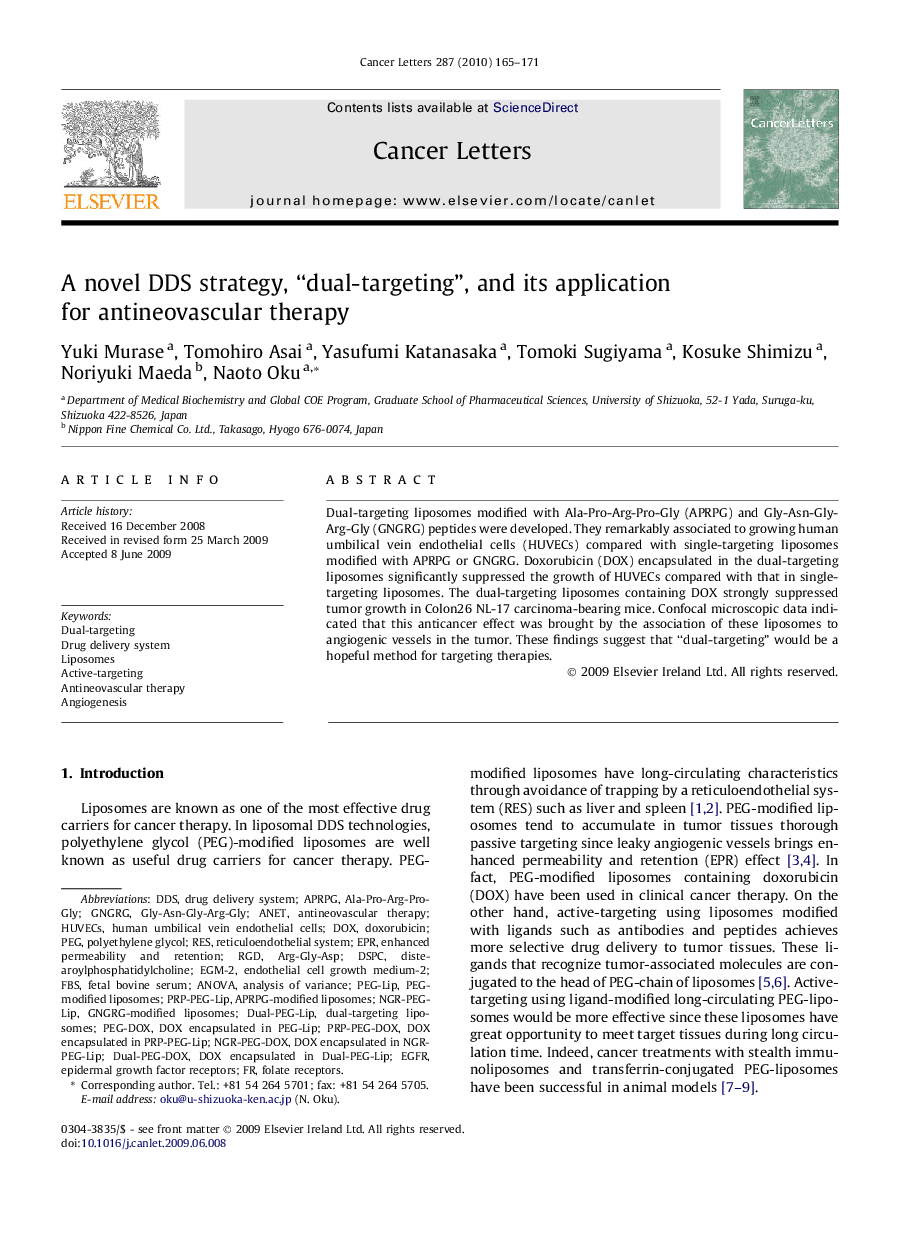| Article ID | Journal | Published Year | Pages | File Type |
|---|---|---|---|---|
| 2116504 | Cancer Letters | 2010 | 7 Pages |
Abstract
Dual-targeting liposomes modified with Ala-Pro-Arg-Pro-Gly (APRPG) and Gly-Asn-Gly-Arg-Gly (GNGRG) peptides were developed. They remarkably associated to growing human umbilical vein endothelial cells (HUVECs) compared with single-targeting liposomes modified with APRPG or GNGRG. Doxorubicin (DOX) encapsulated in the dual-targeting liposomes significantly suppressed the growth of HUVECs compared with that in single-targeting liposomes. The dual-targeting liposomes containing DOX strongly suppressed tumor growth in Colon26 NL-17 carcinoma-bearing mice. Confocal microscopic data indicated that this anticancer effect was brought by the association of these liposomes to angiogenic vessels in the tumor. These findings suggest that “dual-targeting” would be a hopeful method for targeting therapies.
Keywords
DOXHUVECSRGDRESDDSDSPCFBSArg-Gly-AspEGM-2EGFRdistearoylphosphatidylcholineAnetAngiogenesisanalysis of varianceANOVAEPRDoxorubicinendothelial cell growth medium-2fetal bovine serumHuman umbilical vein endothelial cellsDrug delivery systemReticuloendothelial systemLiposomesEnhanced permeability and retentionDual-targetingpolyethylene glycolPEGepidermal growth factor receptorsFolate receptors
Related Topics
Life Sciences
Biochemistry, Genetics and Molecular Biology
Cancer Research
Authors
Yuki Murase, Tomohiro Asai, Yasufumi Katanasaka, Tomoki Sugiyama, Kosuke Shimizu, Noriyuki Maeda, Naoto Oku,
